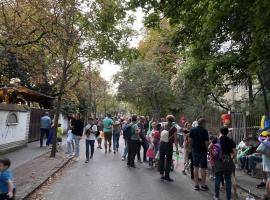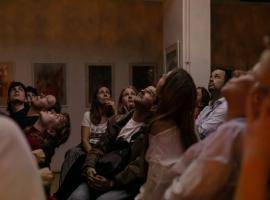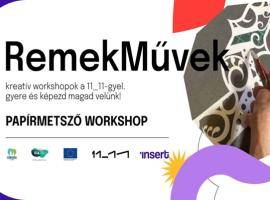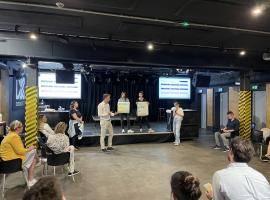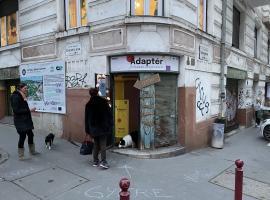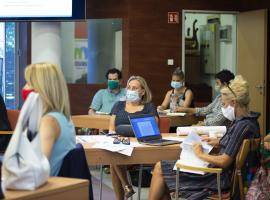In the past years, the inner area of Újbuda’s “high street”, the Bartók Béla Boulevard, has become one of the most popular areas in Budapest. In 2019 and 2021, Újbuda was ranked by the readers and experts of Time Out magazine among the best neighbourhoods in the world. The area’s success was not created overnight; it is the result of more than a decade’s transformation fed both by bottom-up cultural initiatives and strategic municipal planning.
Újbuda’s innermost neighbourhoods enjoy a peculiar geographical and demographic position. Squeezed between the Gellért hill and the Danube river, the Bartók Boulevard’s dense urban fabric reminiscent of Pest’s inner city blocks is combined with easy access to the riverfront and the green slopes of the hill. This inner city-like density of urban spaces and services corresponds to the area’s special demography. The presence of some of Hungary’s biggest universities (BME – Budapest University of Technology, ELTE – Eötvös Loránd University of Sciences with the faculties of natural and social sciences) and their dormitories made the area popular among students, and it is by no surprise that many graduates of these universities opened their businesses, offices or associations in the area they knew most in the city.
Inspired by the concepts of creative and cultural urban transformation popular in the mid-2000s, the Újbuda Municipality created a programme to develop the Bartók Béla Boulevard into a cultural quarter. As part of this programme, the district renovated public spaces along the boulevard and developed a new competition concept to prioritise and subsidise the use of ground-floor commercial spaces by cultural and creative organisations. Though disrupted by the 2008 economic crisis that left the area with many closed shops, on the long run this policy attracted a number of new coffee houses, restaurants as well as art galleries in the early 2010s. A new cultural centre opened in a ground floor space owned by the municipality, and an umbrella organisation – the Bartók Boulevard Association – was created to represent cultural operators in the area and strengthen the neighbourhood’s cultural brand. In the second half of the 2010s, with the arrival of design and architecture-related organisations like the KÉK–Hungarian Contemporary Architecture Centre and many design and tech-related offices, the area was gradually recognised as one of Budapest’s key centres for the cultural and creative industries.
In the late 2010s, however, with real estate prices skyrocketing in the district, it seemed that the area might have gone beyond its zenith. The arrival of Starbucks to Gellért Square – the square acting as the gate of the neighbourhood – rang the alarm for many protagonists of the area. There was a growing awareness of the relative fragility of this success. Wary of the potential overdevelopment of the area to follow the decline of other cultural high streets across Budapest, the municipality began to reach out to cultural operators, local associations and representatives of the creative and tech sectors in the area to discuss how to avoid the saturation of the neighbourhood and mitigate the impact of gentrification and commercialisation in the area. This discussion, exploring the needs for creating better access to culture for the area’s residents, weaving stronger connections between the cultural and tech sectors, and building a stronger local ecosystem where culture can be a protagonist of a broader social and economic transformation, led to the CUP4Creativity project.






